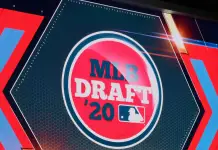by spiritof66
When Peter Angelos bought the team in 1993, I don’t think I was paying much attention to anything other than his pledge to keep the Orioles in Baltimore. Within four or five years, after reading about him and talking to lawyers who had dealt with him and/or had much more knowledge of his conduct and character than the public in that pre-internet period, I was confident his influence on the team would be somewhere between bad and disastrous, and I argued that to anyone who would listen. But I also figured that the Angelos era would last no more than 10 or 15 years. (He was 64 when he bought the team. I knew nothing about his sons, though when I did run across one he certainly didn’t seem like the future owner of an MLB team.)
For roughly fifteen years (starting more or less as Angelos neared 75 and the end of the term I had expected), I’ve often felt like Charlie Brown lining up for a placekick. Every rumor that Cal or Kevin Plank or some guy I’d never heard of might be interested in buying the team – and it didn’t take much more than a rich Baltimorean showing up at a game or a “no comment” – raised my hopes that my team might soon be rid of the arrogant, self-righteous, ignorant fool who could not produce the contender that was our regular fare during my first decade-plus as an Orioles fan. I feel an almost physical pain when someone talks about Angelos selling the team. It’s as if I had a chronic but non-fatal disease, and have read about a series of miracle cures, each of which turns out not to exist or not to work. I don’t want to get to get my hopes up, but sometimes I can’t help i
First, I have come to believe it’s an exercise in frustration to look closely at the team’s decisions and then use logic to infer a rational strategy on the part of the owner underlying those decisions. The man had no idea how to run a baseball team when he was 78. Why should we think his decisions and non-decisions (as many of his decisions seem to be — a way of avoiding making a decision) at 88 reflect a thought-out, rational strategy that makes any sense?
I understand that an 88-year-old billionaire who thinks he’s the smartest owner in baseball and has failed for 26 years to see his team in the World Series won’t start a rebuild. That’s a selfish, narrow-minded decision, but I get it that rebuilding is off the table. But even a barely rational person who looks at this team for five minutes believes it needs much better starting pitching to be decent this year, much less a contender. Angelos must have been been told that the only ways to get that kind of pitching are to trade an established player under team control, sign a free agent to a long-term contract, add a free agent willing to sign for a year or two, or get lucky with other teams’ castoffs and what appear to be modestly talented guys in the system. Angelos’ (I believe it’s his) decision not to pursue either of the first two options doesn’t reflect, in my opinion, some rational, overall plan or strategy for building a competitive team. What I think it demonstrates is that the man is clueless, stubborn and indecisive, unwilling either to give up the fight or to pay what it would take for the Orioles to wage it. So I don’t see the connection between the Orioles’ off-season inaction and the likelihood of a sale, or effort to sell, the club. But I admit that’s at least partly because I just don’t want to get my hopes up on such a slim basis.
Here’s another possibility: it seems at least as likely to me that Angelos is trying to minimize the team’s financial commitments as part of a plan to leave the team to his kids (who could then decide to keep the team or sell it). As I’ve explained in previous posts, and have even tried to quantify roughly, if Angelos still owns the controlling interest when he dies, his estate will have to pay hundreds of millions of dollars in federal and state taxes. I believe the result of that tax burden would be that, if the estate can pay those taxes without selling the team, his sons as inheriting owners would be strapped for cash, especially if there’s an adverse resolution of the MASN dispute. It may be that Angelos wants to give his sons the best shot he can at retaining control of the team, if they want to do that, by cutting back on future financial obligations. (Why didn’t he think of that when Davis and Trumbo were signed? Maybe he’s facing up to the inevitability of his mortality more than he was then.)
The uncertainty over rights fees will make it harder for Angelos to sell the team, but it’s not impossible. The sale price could be adjustable to take into account alternative outcomes of that dispute. Moreover, as I think I’ve suggested in a post or posts if Angelos is interested in selling the team (Damn, Lucy Van Pelt just got me again), that could help resolve the MASN dispute. The possibility of getting Angelos and his sons out of the owners’ club should be worth something to MLB’s executives and the other owners. With the sale of a team as a carrot, Angelos could say that potential buyers can’t tell what the past and future rights fees will be, making it difficult to complete a sale is with the MASN rights fees unresolved, and showing how challenging it will be for new owners to compete with the rights fees that were set in the first arbitration, might lead to a fairer way of setting the rights fees.
Finally, I’m not worried about the Orioles leaving Baltimore during my lifetime. MLB will be reluctant to allow any team to relocate if it means admitting failure to establish a viable franchise in any city. Putting aside the Dodgers’ and Giants’ move in 1958 and the definition of “New York,” I believe that since the AL moved the Baltimore franchise to New York in 1903, every city that lost an MLB franchise, other than Montreal, either had a team remaining or got an expansion franchise.
Recently, when franchises have been troubled, MLB has blamed the inadequacy of the stadium, as it did in Montreal and is doing now in Tampa and Oakland. (Loria’s ownership takes the heat for Miami.) That obviously wouldn’t apply to Baltimore. It’s clear to me that Oakland and TB have dibs on the next franchise relocations, which they’ll be permitted to exercise only if they fail to resolve their stadium situations over, I would guess, at least the next five years and probably more. Those dibs, and the uncertainty as to whether they’ll be needed, in turn, are holding up expansion to a more-manageable 32 teams. After the Rays and A’s get resolved, those spots will move to the front of the line, and I can’t see MLB letting the Orioles butt in. So barring some disaster, the Orioles (and every other team) are stuck for at least five or ten years, and then will be left with the third, fourth or fifth most desirable place to move. Without opening New York or LA, there’s not a single untapped gold mine for a relocated MLB franchise, let alone several of them, and public giveaways to lure teams are getting less lucrative and less popular. I am guessing it will take 20 years for that many attractive options to open up. By then, I would hope, MLB will have taken serious steps to level the competitive playing field.










![hillenwarehouse[1]](https://orioleshangout.com/wp-content/uploads/2018/02/hillenwarehouse1.jpg)














